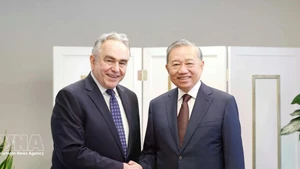Over the course of many historical phases, Viet Nam–Sweden relations have continually evolved, achieving numerous important and meaningful accomplishments.
Around 60 years ago, at the height of the war in Viet Nam, Swedish citizens took to the streets in protest to show their support for the Vietnamese people's just struggle.
In October 1968, the National Liberation Front for South Viet Nam opened an information office in Stockholm. By January 1969, Sweden officially recognised and established diplomatic ties with Viet Nam. Since then, bilateral relations have seen steady progress. In 1970, both countries established embassies in each other’s capitals.
Exchanges of delegations at various levels have been maintained consistently. On the foundation of political trust, economic and trade relations have also been significantly strengthened. In November 2012, the Swedish Embassy in Ha Noi opened a trade office under the Swedish Trade and Investment Council.
Efforts from both sides helped bring bilateral trade turnover in 2024 to nearly 1.5 billion USD. Viet Nam imports telecommunications equipment, machinery, and pharmaceuticals from Sweden, while exporting electronics, footwear, textiles, seafood, wooden products, handicrafts, computers, and components.
In terms of investment, Sweden currently ranks 29th among 149 countries and territories investing in Viet Nam, with 111 active projects totaling approximately 743 million USD in registered capital.
Viet Nam–Sweden relations have undergone various historical stages. Sweden remains the largest provider of non-refundable aid to Viet Nam among Northwestern European countries, with total assistance since 1967 exceeding 3 billion USD. This aid has been focused on health care, economic reform, public administration, legal development, human resource training, environmental protection, and climate change mitigation.
With evolving aid policies and Sweden’s international cooperation strategy, alongside Viet Nam’s global integration, bilateral cooperation has shifted toward a more equal partnership model, with both sides contributing resources.
In agriculture, for example, Sweden—along with the Netherlands, Finland, and Switzerland—established the Trust Fund for Forests in 2004. This was a new funding model in which donor nations contributed to a common fund managed by Viet Nam. The fund has been evaluated as effective in meeting urgent needs of the forestry sector, especially regarding forests and climate change.
Following Sweden's 2009–2013 cooperation strategy, the two countries transitioned from traditional aid to mutually beneficial partnerships. Viet Nam and Sweden have also expanded cooperation in culture, education and training, science, and technology.
The years 2019 and 2024 marked significant milestones in bilateral ties as the two nations celebrated the 50th and 55th anniversaries of diplomatic relations, respectively.
Various activities were jointly organised, including high-level delegation exchanges, cultural and artistic events, and business forums. Notably, during Viet Nam’s commemoration of the 50th anniversary of the Liberation of the South and National Reunification (April 30, 1975 –2025), the Swedish Embassy in Viet Nam presented a valuable documentary titled Victory Viet Nam. Directed by Swedish filmmaker Bo Öhlen and his colleagues on the very day of April 30, 1975, the film captured the vibrant atmosphere in Stockholm as Swedes took to the streets to celebrate the liberation of Sai Gon, marking the end of the war in Viet Nam.
In that historical footage, the affection of the Swedish people for the Vietnamese was vividly expressed—through applause, cheers, and heartfelt speeches of support from this Nordic nation for the Vietnamese people's just cause.
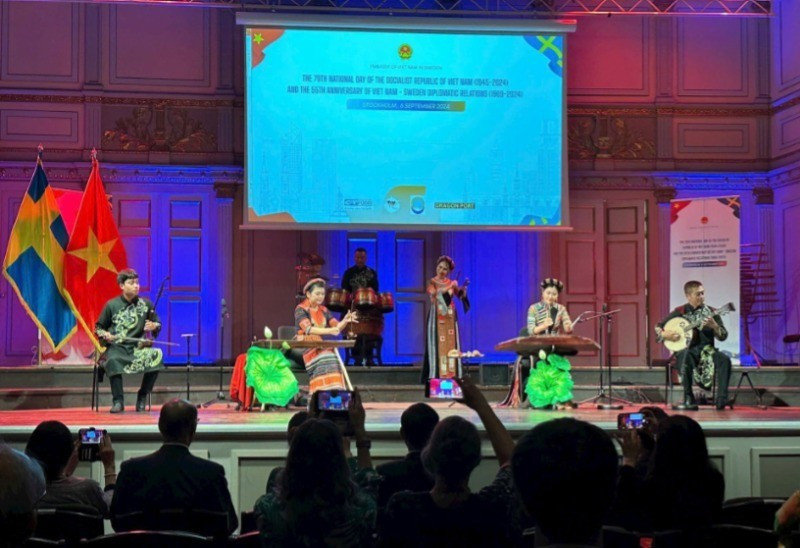

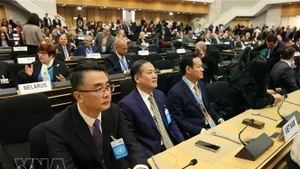
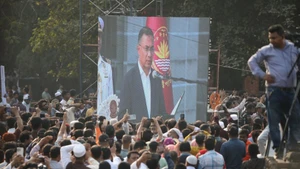
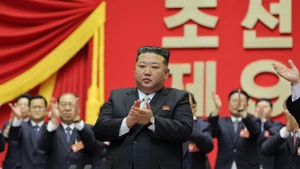
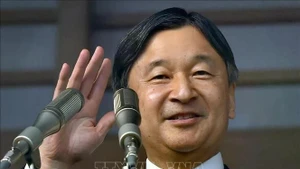
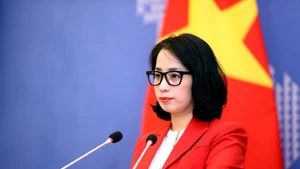

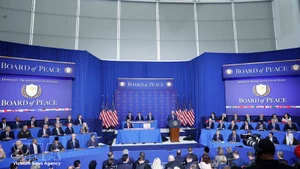
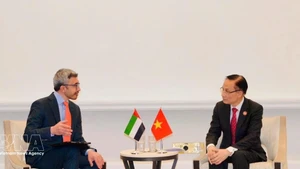
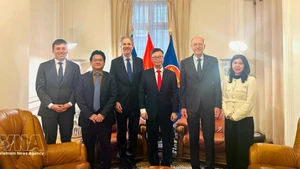
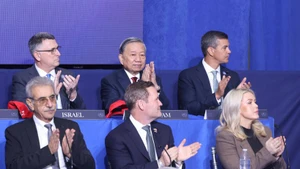
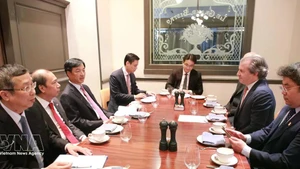
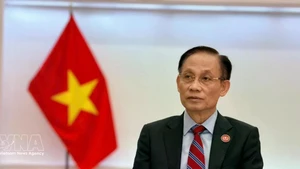
![[In pictures] Party General Secretary To Lam meets US President Donald Trump](https://en-cdn.nhandan.vn/images/dcd63867a0eed4c7753eb4bfb346593abc1ce710dfab8ad1b9aebd75ea6bf930b2ea13e4664779d689ba40aadd80f76d5d05d1208720fd7b0d811ace3a3297321c78cf738400e136e3f2d8790b24d43646e46edbe19517144a88f6ffb0d528f153574a7109328cc0949e4a4c16433c2ff751541639eefe4490518227264cbf8e/vna-potal-tong-bi-thu-to-lam-gap-tong-thong-hoa-ky-donald-trump-8599945.jpg.webp)
